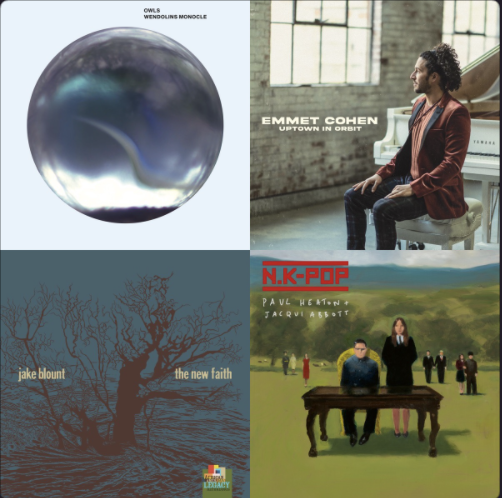PBNSOTW
A regular Thursday feature of this channel.
This is the first time I’ve put the Problem Child in the leadoff slot. Too Much For One (Not Enough For Two) is so strong in lyrics, production, and performance it should make any year-end Top 100 list. It’s the mythical missing duet from the Nancy Sinatra/Lee Hazlewood album. Written and performed by Paul Heaton and Jacqui Abbott, it also surrenders to the current tsunami in overuse of tape saturation plugs to add distortion to the lead vocals in order to get them to cut over a dense track. Compound that with overly aggressive limiting in mastering, and the result is a cut that sounds acceptable on some systems, hairy edge of listenable on others, and downright objectionable on others. I get it, the saturation makes things a shade more urgent and exciting, I’ve been guilty of overuse of this on occasion as well. But with a tune this strong, you really have to be thinking 10, 20, 30 years down the road and make sure you don't do anything you'll regret.
My Love Will Come Again is that rare small combo jazz original with a head strong enough to hold its own melodically, and not just function as bookend to the solos. Seriously, it’s 2:12 into the piece before any solo. Cohen himself is content just to spell chords in his right hand while Sean Jones and Patrick Bartley handle the heavy lifting on trumpet and sax. The sensation is driving the 101 on a sunny, traffic-free day in a convertible.
What do you say about another version of Didn’t It Rain? Well, this one certainly has the most parallel fourths in it. Jake Blount also wins the backing vocal re-harmonization competition hands down. Spectacular guitar solo, perfect production. But the real magic here is Jake’s voice. I keep wondering how they got that performance—it sounds like a first take.
Visions is the exact opposite of My Love Will Come Again: the 101 in traffic, and a steady grey rain washing the colors out the world. The group here is Austrian trio Owls supplemented by trumpeter Herbert Walser-Breuß, and the album, if you’re curious, is called Wendolins Monocle and is termed an “interdisciplinary programmatic work” that also features vocals and spoken word. Very avant-garde. None of that here, just really fine jazz with David Ambrosch’s bass right up front pushing the sense of unease.


